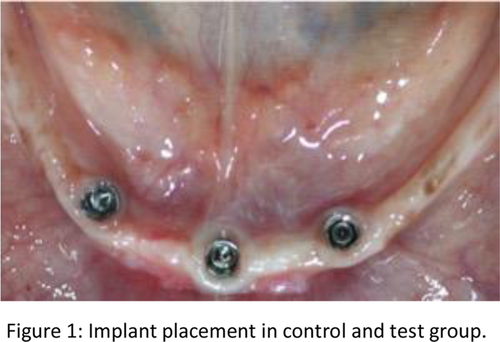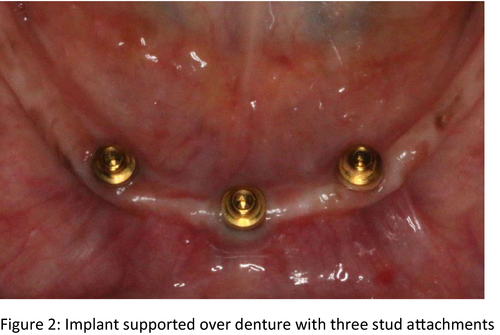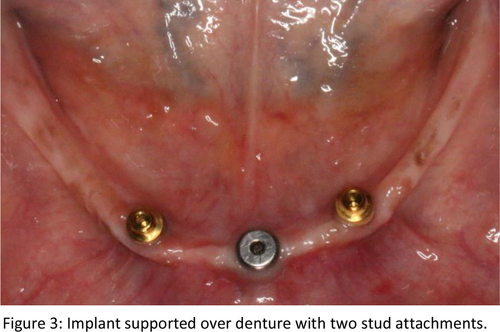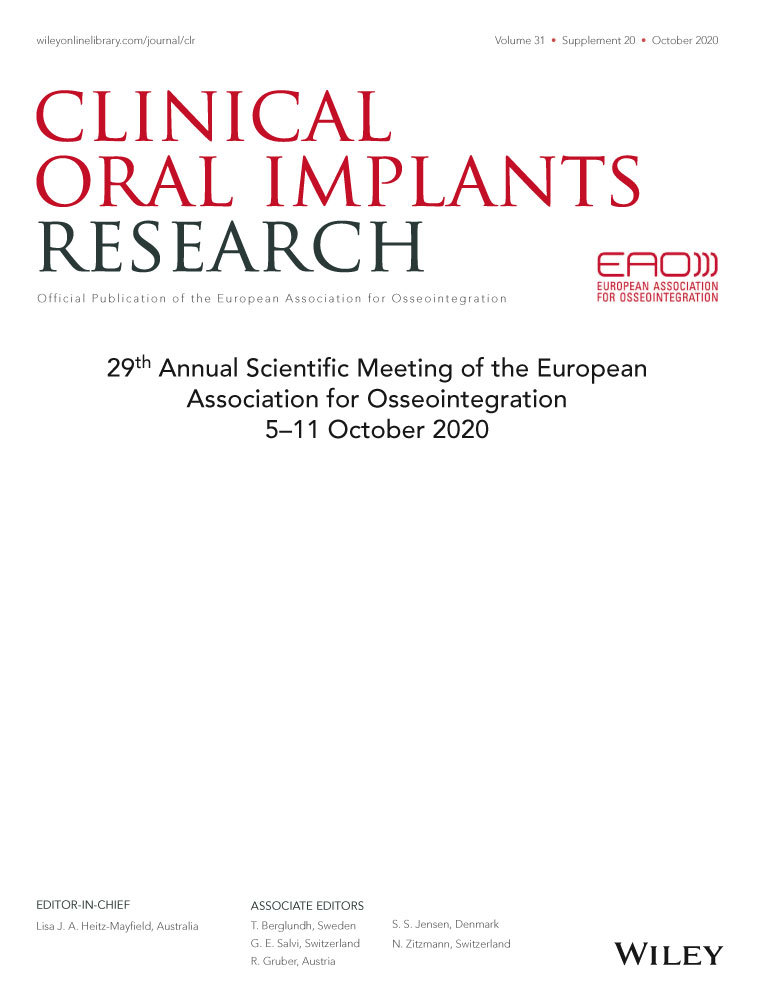Evaluation of OHRQoL and patient satisfaction in 3 implant retained mandibular overdentures: A RCT
5TAIK ePOSTER CLINICAL RESEARCH – PROSTHETICS
Background: According to the McGill consensus, a mandibular overdenture supported by two implants is considered the standard treatment of care for edentulous patient (Thomason, et al; 2002; Feine, et al; 2009). However, two implant supported overdenture could lead to rotational movement of the denture. Cross- over controlled clinical trials comparing the clinical benefits of 2 and three implants for retaining mandibular overdentures in the same patient are rare in the literature
Aim/Hypothesis: To assess whether or not mandibular overdentures supported by three implants lead to better Oral Health Related Quality Of Life (OHRQoL) and patient satisfaction than mandibular overdentures supported by two implants in a randomized controlled clinical trial with a crossover design.
Materials and Methods: In this randomized cross-over clinical trial, twenty edentulous patients received a new set of conventional complete dentures (baseline). Subsequently, three implants were installed in the anterior mandible; two of these were placed in the canine regions bilaterally and one in the midline (Figure 1). After successful osseointegration, complete dentures were attached to the implants using resilient attachments. The overdenture was retained either by 3 implants (test group) (Figure 2) or 2 implants (control group) (Figure 3). The sequence of treatment was randomized such that each patient experienced both treatment options for 6 months each. Oral Health Related Quality Of Life (OHRQoL) was assessed at baseline and after each 6 months of function using Oral Health Impact Profile (OHIP-14) and VAS scores. Statistical analyses were performed using Friedman and Wilcoxon Signed rank test.
Results: The mean OHIP-14 and VAS scores were statistically significantly higher for conventional dentures (25.25 + 6.42/ 8.55 + 1.73) compared to the two implant supported overdenture (11.15 + 5.39/ 4 + 2) (P < 0.001) and the three implant supported overdenture (6.25 + 4.02/ 2.06 + 1.48) (P < 0.001). Statistically significantly higher mean OHIP-14 scores and VAS scores were noted for the two implant supported overdenture compared to the three implant supported overdenture (P < 0.001).
Conclusions and Clinical Implications: Overdentures retained by three implants supported by stud attachments resulted in better OHROoL scores and higher patient satisfaction compared to overdentures retained by two implants and conventional complete dentures. Three implant supported overdenture can be used an alternative treatment option for overdenture therapy in edentulous patients.
Keywords: Implant supported over denture, Stud attachment, Oral Health Quality of life, Patient Satisfaction







